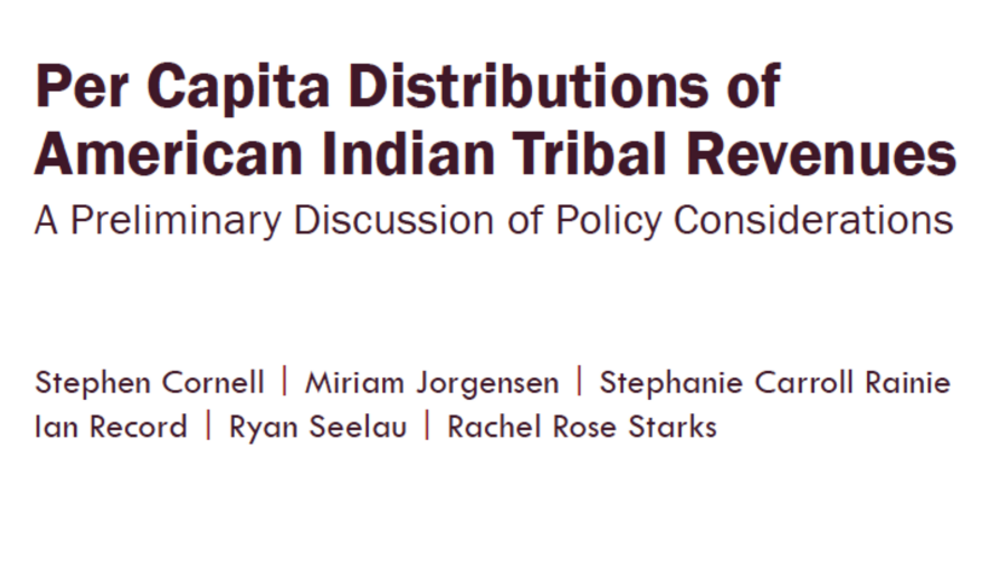For many Indian families, tribal per capita payments help meet their most basic needs. They buy food, pay heating bills, make car payments, and open savings accounts. As a Dry Creek Rancheria Band of Pomo Indians leader explains, per capita monies have given historically impoverished Indian communities “cause to hope and dream and plan.” But systemically, “per caps” are causing harm to tribes as independent political entities.
Ho-Chunk, Inc., CEO Lance Morgan has indicted per capita dollars as a “new form of welfare [that] is just the latest in a cycle of dependency that Indian Country has been trying to break out of for the last 100 years.” Socioeconomic dilemmas aside, per capitas have become an indomitable force in tribal policy and governance, to the detriment of Indian political stability and self-governance...
Additional Information
Galanda, Gabriel S. "Tribal Per Capitas and Self-Termination." Indian Country Today. August 13, 2014. Opinion. (https://ictnews.org/archive/tribal-per-capitas-and-self-termination, accessed May 31, 2024)




